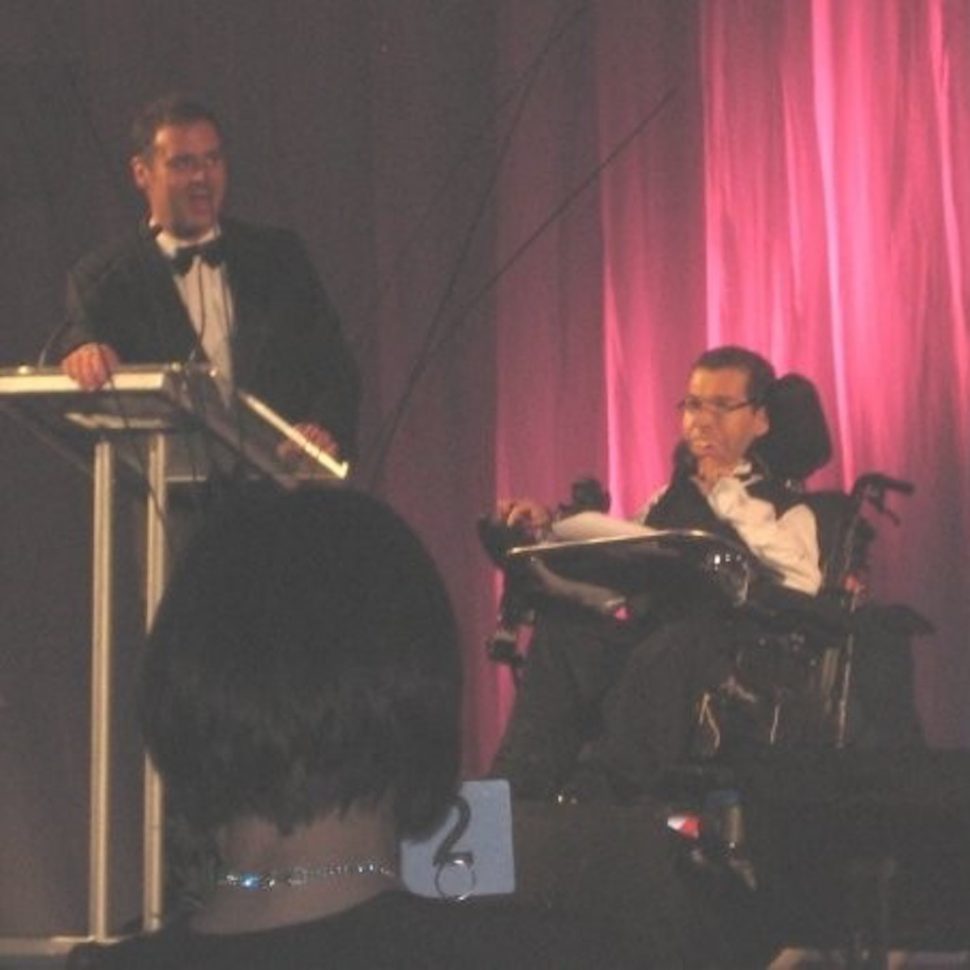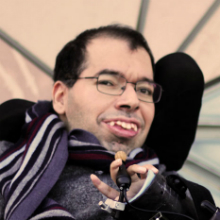Is your organisation returning to face-to-face meetings? You need to read this…

Last week I was invited to an important disability sector consultation. The event was to be held in Sydney but I live in Melbourne and travelling to Sydney is not possible because of my disability.
My last flight was almost 15 years ago and I remember it well. I had been invited to host the National Disability Awards in Canberra – an opportunity to be with the “disability A-list”. It was only a one-hour fight, I thought I could manage that. But on that journey, I struggled to find a position where I could both breathe and not be in agonising pain.
So it was then I accepted that my progressive neurological disability had reached the point where this would be the last time I would see the inside of an aircraft.
Not being able to fly excluded me from important opportunities in my advocacy work. It was difficult turning down invitations to take part in sector events, conferences and round tables. Word got around that I couldn’t travel. Invitations slowed down. My world became smaller.
Not many other people shared the experience of not being able to travel. This all changed when the pandemic came along. Suddenly my experience was not unusual and the world found new ways to connect. As we moved from face-to-face conferencing to teams and zoom, suddenly I could take part. My world had become big again!
Suddenly I was back, accepting invitations for high level appointments, and regularly meeting with leaders across the country. I was able to take part and do the important work that I love doing.
Of course, the technology was available before the pandemic, but the will and interest to use it was largely absent. When I advocated for the use of technology to involve people who for one reason or another were unable to physically attend, I would be told it was too hard, too expensive or just ignored.
Everything changed, of course, when the problem was no longer confined to a small minority. Suddenly connecting remotely was no longer too hard or too difficult, everyone was doing it.
Why does it take a global pandemic for our society to be more inclusive? Why do the majority of people have to be directly affected by a problem in order for a problem to be solved? And what will happen when the majority are no longer affected?
Well now lockdowns are over and the borders are open. Most people are free to travel again. However some of us are not. But have we learned to do things more accessibly, or will we go back to excluding people who are not able to travel?
My recent experience of being invited to a disability sector consultation has raised serious alarms. When I told the organiser, who is a senior leader in the sector that I needed to participate remotely, I was told that was not possible and was offered a separate meeting. When I raised my concerns with a fellow invitee, I was told to pick my battles.
I’ve been fighting discrimination my whole life and I will keep fighting this battle. We must accommodate access needs, and the option to participate remotely is one of these needs alongside interpreters, wheelchair access, dietary requirements, childcare arrangements, hearing loops, accessible information et cetera.
People should not be excluded from a seat at the decision-making table because we have a disability, caring responsibilities or underlying medical conditions that affect our ability to travel. We have the technology for remote access and must continue to use it beyond the pandemic when events occur face-to-face, anything less is discrimination and shuts out important people that need to be included.
So as your organisation plans its return to face-to-face meetings consider the needs of people who will not be able to attend in person. First ask, does the benefit of face-to-face interaction outweigh the extra cost, time and carbon footprint? If yes, make use of technology available for hybrid meetings with the benefits of face-to-face interaction and the ability to participate remotely.
Dr George Taleporos is a disability rights advocate. He has over 20 years of experience in the disability field, focussed predominantly on advocacy, human rights policy and practice, service development and management. He has a PhD in the field of psychology, a Graduate Diploma in educational psychology and Honors in sociology. Dr George is the man behind the Summer Foundation’s Reasonable & Necessary podcast. He is also the Chair of the Victorian Disability Advisory Council, and a regular opinion writer for Every Australian Counts. These are his personal views. You can follow him on Twitter @drgeorgethecrip.


Join the conversation